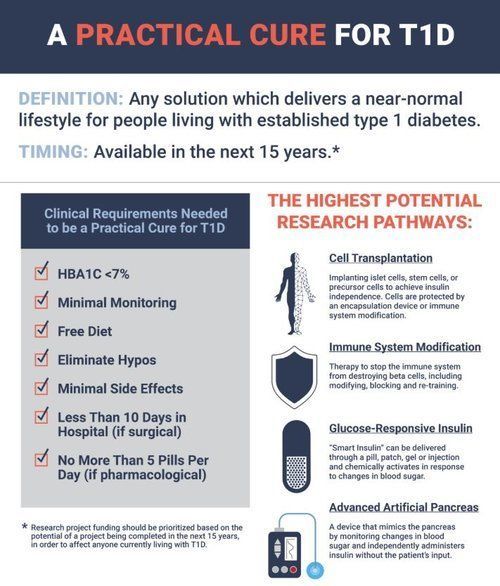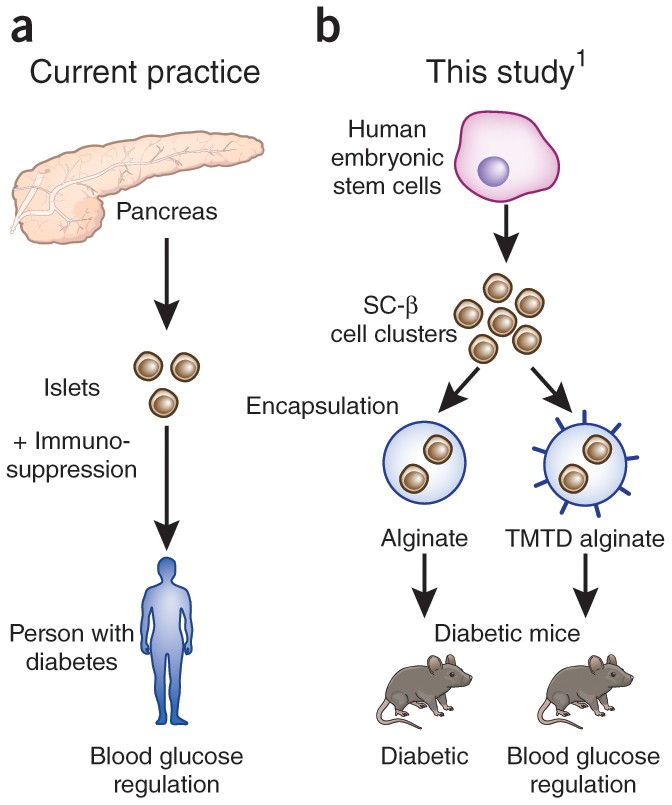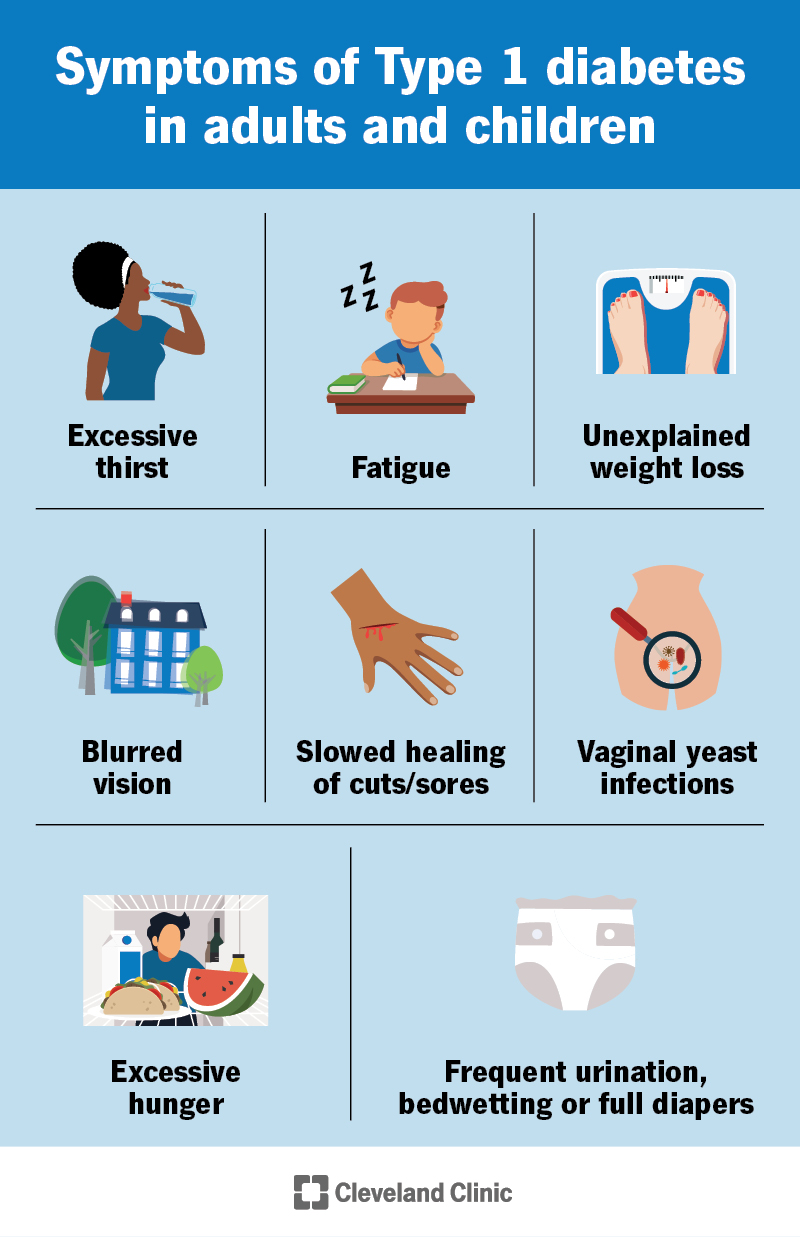Imagine a world where living with type 1 diabetes is a thing of the past. No more daily insulin injections, constant glucose monitoring, or worrying about blood sugar levels. Well, get ready to be excited because researchers may have discovered a potential cure for type 1 diabetes. This groundbreaking development could change the lives of millions of people worldwide, offering hope and a brighter future for those affected by this chronic condition. Read on to discover the latest breakthroughs and what this means for the future of diabetes treatment.

Current Challenges in Treating Type 1 Diabetes
Insulin Dependency
One of the significant challenges in treating type 1 diabetes is the lifelong dependency on external insulin. Type 1 diabetes occurs when the immune system mistakenly attacks and destroys beta cells in the pancreas, which are responsible for producing insulin. As a result, individuals with type 1 diabetes need to closely manage their blood sugar levels by administering insulin through injections or insulin pumps. This daily routine of monitoring blood sugar levels and administering insulin can be burdensome and may lead to fluctuations in blood sugar levels, posing several health risks.
Autoimmune Response
Type 1 diabetes is primarily caused by an autoimmune response, where the immune system mistakenly targets and destroys the insulin-producing beta cells. Understanding and effectively managing this autoimmune response is another key challenge. Researchers are striving to unravel the intricate mechanisms behind the immune system’s attack on beta cells, with the aim of developing treatments that can prevent or halt the progression of the disease.
Lifetime Management
Living with type 1 diabetes requires consistent and diligent management throughout a person’s lifetime. It involves regularly monitoring blood sugar levels, adjusting insulin doses, maintaining a balanced diet, and engaging in physical activity. This can be mentally and emotionally exhausting, as it demands constant attention and can have a significant impact on one’s quality of life. Therefore, finding ways to reduce the burden of lifetime management is crucial in improving the overall well-being of individuals with type 1 diabetes.
Emerging Approaches to Cure Type 1 Diabetes
Beta Cell Replacement
One promising approach to curing type 1 diabetes is through beta cell replacement. This involves transplanting functional beta cells into the pancreas to restore insulin production. Two main methods are currently being explored: islet transplantation and stem cell transplantation.
Islet Transplantation
Islet transplantation involves isolating insulin-producing cells, known as islets, from a donor pancreas and transplanting them into the recipient’s liver. The transplanted islets can then establish insulin production, leading to improved blood sugar control. While this approach has shown promising results, there are challenges related to the scarcity of donor organs and the need for lifelong immunosuppressive medications to prevent rejection.
Stem Cell Transplantation
Stem cell transplantation offers a potential alternative to islet transplantation. It involves differentiating stem cells into beta cells, which can then be transplanted into the pancreas. This approach has the advantage of not relying on donor organs, but it currently faces challenges in ensuring the safety and functionality of the transplanted beta cells.
Gene Therapy
Gene therapy holds great promise in the field of type 1 diabetes research. It aims to correct the genetic defects or abnormalities that contribute to the development of the disease. Two key components of gene therapy for type 1 diabetes are gene editing techniques and viral vector delivery systems.
Gene Editing Techniques
Gene editing techniques, such as CRISPR-Cas9, allow scientists to modify specific genes associated with type 1 diabetes. By correcting the genetic abnormalities responsible for beta cell destruction, it is hoped that the disease can be effectively treated or even reversed. However, extensive research is still required to ensure the safety and efficacy of gene editing techniques before they can be applied in clinical settings.
Viral Vector Delivery Systems
Viral vectors can be used as delivery systems to introduce therapeutic genes into the body. These genetically modified viruses can target pancreatic cells and deliver genetic material to restore proper insulin production. However, challenges remain in optimizing the viral vectors to ensure precise targeting and efficient gene delivery, while minimizing any potential side effects.
Immunotherapy for Type 1 Diabetes
Immune Modulators
Immunotherapy involves modulating the immune system to prevent or halt the destruction of beta cells in type 1 diabetes. This can be achieved through the use of immune modulators, which aim to restore immune balance and tolerance. These modulators can be administered as medications or in the form of vaccines, helping to re-educate the immune system and prevent further damage to beta cells.
Antigen-Specific Therapy
Antigen-specific therapy focuses on identifying and targeting specific antigens that trigger the immune response against beta cells. By selectively suppressing or redirecting the immune response, antigen-specific therapy aims to preserve beta cell function and prevent the progression of type 1 diabetes. This approach holds promise, but further research is needed to optimize the delivery methods and ensure long-term effectiveness.
Potential Challenges and Limitations of Type 1 Diabetes Cure
Long-Term Efficacy
While the emerging approaches and advancements in type 1 diabetes cure offer hope, ensuring long-term efficacy remains a challenge. Some treatment methods may initially show positive results, but maintaining consistent and sustained improvement over an individual’s lifetime is essential. Research must focus on long-term follow-up studies and monitoring to assess the durability and effectiveness of these potential cures.
Cost and Accessibility
Another consideration when developing a cure for type 1 diabetes is the cost and accessibility of the treatment options. Some methods may involve complex procedures, the use of expensive medications, or the need for extensive medical facilities. It is important to develop treatments that are not only effective but also affordable and easily accessible to individuals living with type 1 diabetes worldwide.

Clinical Trials and Breakthroughs in Type 1 Diabetes Cure
Encouraging Trial Results
Numerous clinical trials have been conducted to evaluate the safety and efficacy of the emerging approaches in type 1 diabetes cure. Encouraging results have been observed, showing improvements in blood sugar control, reduced insulin dependence, and preservation of beta cell function. While further research is still needed, these promising trial results provide optimism for a future where type 1 diabetes may be effectively cured.
Discovery of New Targets
Ongoing research continues to uncover new potential targets for type 1 diabetes treatment. By better understanding the underlying mechanisms of the disease and identifying specific pathways or molecules involved in the immune response, researchers can discover novel therapeutic targets. These discoveries pave the way for the development of more effective treatment options and potential cures for type 1 diabetes.
Future Perspectives in Type 1 Diabetes Cure
Artificial Pancreas
The development of an artificial pancreas is an exciting prospect in the field of type 1 diabetes cure. By combining continuous glucose monitoring and automated insulin delivery systems, an artificial pancreas aims to mimic the physiological function of a healthy pancreas. This technology has the potential to revolutionize diabetes management, alleviating the burden of frequent blood sugar monitoring and insulin administration.
Nanoencapsulation Technology
Nanoencapsulation technology offers a promising avenue for delivering insulin-producing cells or therapeutic agents to the pancreas. It involves encapsulating beta cells or drugs within biocompatible nanomaterials, protecting them from immune attack and ensuring targeted delivery. This technology shows potential in enhancing the survival and functionality of transplanted beta cells, as well as improving the efficacy of therapeutic agents in treating type 1 diabetes.
Collaborative Efforts and Funding in Type 1 Diabetes Research
Public-Private Partnerships
Collaboration between academia, industry, and government organizations is crucial in advancing type 1 diabetes research. Public-private partnerships foster the exchange of knowledge, resources, and expertise, speeding up the development and translation of novel treatments. By pooling resources and working together, researchers and stakeholders can overcome obstacles and accelerate progress towards finding a cure for type 1 diabetes.
Government Funding Initiatives
Government funding plays a significant role in supporting type 1 diabetes research. Governments worldwide invest in research grants, funding initiatives, and public health programs aimed at improving diabetes management and finding a cure. By prioritizing and dedicating resources to type 1 diabetes research, governments contribute to fostering innovation and promoting advancements in treatment strategies.
Conclusion
Despite the challenges posed by type 1 diabetes, significant progress is being made in the pursuit of a cure. Emerging approaches, such as beta cell replacement, gene therapy, and immunotherapy, offer new possibilities for effectively treating and potentially curing the disease. Advances in technology, such as the development of artificial pancreas and nanoencapsulation, further enhance the prospects of improving the lives of individuals living with type 1 diabetes.
Critical collaboration, both through public-private partnerships and government funding initiatives, is essential to overcome the challenges faced in research and development. By working together, the scientific community can accelerate the discovery of new targets, perform extensive clinical trials, and translate promising findings into tangible treatments.
The quest for a cure for type 1 diabetes is ongoing, but the groundbreaking research and advancements provide hope for a future where individuals no longer face the burdensome challenges of lifelong insulin dependency. With continued dedication and investment, a cure may soon become a reality, improving the lives of millions of people around the world living with type 1 diabetes.

